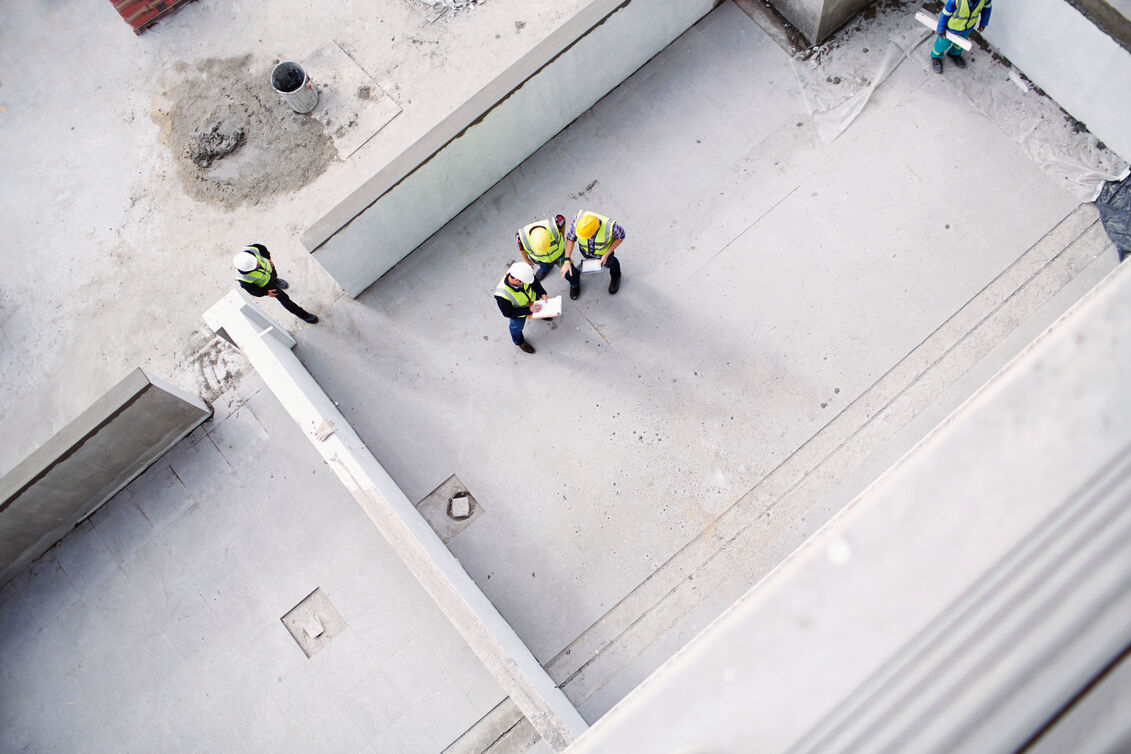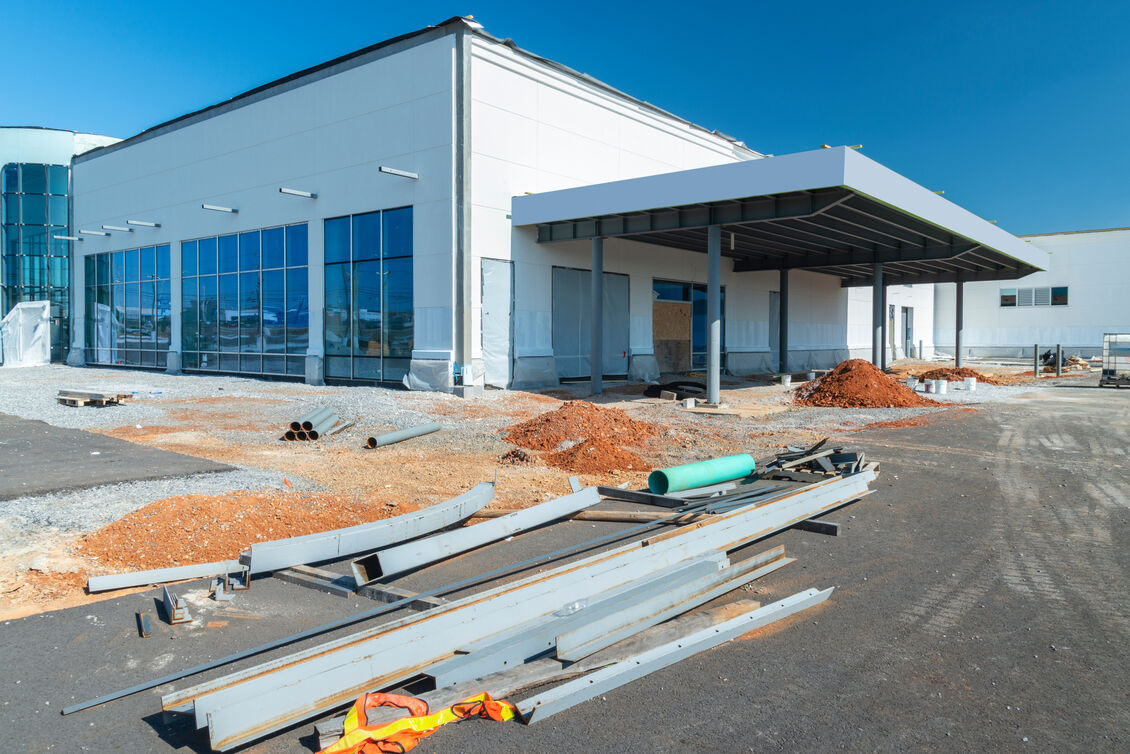

In commercial construction, every detail matters. From structural integrity to finishes and mechanical systems, quality assurance ensures that what’s built meets both the owner’s expectations and industry standards. For developers and property managers, it’s more than just a checklist—it’s protection for one of their largest investments.
Quality assurance (QA) and construction quality control (QC) work hand in hand to verify that every component of a project performs as intended. But while quality control focuses on execution—making sure each element meets specified requirements—quality assurance emphasizes the processes that prevent mistakes from occurring in the first place.
At Apex Contracting Group, we believe quality isn’t just inspected at the end—it’s built in from the start. Here’s how a strong quality assurance framework safeguards owners throughout the entire project lifecycle.

Every construction project involves countless moving parts: multiple subcontractors, changing site conditions, and strict regulatory requirements. Without a structured approach to managing quality, even small oversights can lead to major problems later—like water intrusion, system inefficiencies, or premature material failure.
The importance of quality assurance in construction lies in its ability to:
When quality assurance is prioritized early in the project, owners gain peace of mind knowing that their asset is being built for performance, safety, and longevity.
Although often used interchangeably, these two functions serve different but complementary roles:
For example, QA ensures that a contractor uses proper installation methods and approved materials, while QC verifies that the installed system actually meets those specifications. Both are essential parts of quality management in construction projects.
See Our Tenant Improvement Services

From an owner’s standpoint, quality assurance is a form of insurance. It ensures that project budgets are used efficiently and that the finished building performs as designed.
Comprehensive construction project oversight includes:
Owners who insist on robust QA programs often experience fewer warranty claims, fewer schedule delays, and lower lifecycle costs.
At Apex Contracting Group, we integrate QA/QC into every phase—from design and preconstruction through closeout—so owners can trust that every element of their project has been executed to the highest standard.
A structured QA framework ensures consistency and accountability. Here’s how it typically unfolds on a commercial project:
1. Preconstruction Planning
Quality starts before ground is broken. The project team develops QA documentation, defines performance standards, and aligns subcontractors on expectations. This stage includes reviewing design documents, identifying potential risks, and verifying that all materials meet project requirements.
2. During Construction
Field inspections, testing, and ongoing monitoring occur throughout construction. This phase focuses on ensuring that the work conforms to drawings, specifications, and manufacturer standards. If discrepancies arise, they’re documented and corrected immediately.
3. Post-Construction Verification
Before handover, comprehensive testing—such as water penetration, HVAC balancing, or insulation integrity—is performed to confirm full compliance. QA teams also review as-built documentation to ensure long-term maintainability.
Each of these steps reflects the importance of quality assurance in construction, reducing the risk of rework and long-term issues.
See Our Building Envelope Services

Modern construction relies heavily on technology to ensure accuracy and transparency. Some of the most effective tools in construction quality control include:
When integrated into construction project oversight, these technologies make it easier to spot potential problems before they escalate, saving both time and cost.
Even well-managed projects can encounter quality issues if the process isn’t properly enforced. Some frequent mistakes include:
At Apex, we’ve developed a rigorous internal QA protocol that aligns with industry best practices. Our goal is not just to meet requirements—but to exceed them.
Learn About Commercial Building Recovery After Damage
A comprehensive QA program doesn’t just deliver a successful construction project—it delivers a reliable asset. Owners who invest in quality assurance gain long-term advantages such as:
Most importantly, QA builds trust. It demonstrates to owners, lenders, and tenants that the contractor takes accountability seriously and values lasting performance over short-term gains.
Learn Why Value Engineering Matters in Construction
At Apex Contracting Group, our reputation is built on consistent, verifiable results. We view QA as a partnership with our clients—providing transparency, technical expertise, and proactive problem-solving at every stage of the project.
Our process integrates:
By embedding quality management in construction projects from the outset, we ensure that every decision supports durability, safety, and long-term value.

In an industry where deadlines and budgets drive decisions, construction quality control and assurance provide a layer of protection that can’t be replaced. They ensure that what’s promised on paper is delivered in the field—with the precision, safety, and longevity that owners expect.
By emphasizing construction project oversight and integrating advanced QA processes, Apex Contracting Group helps clients protect their investments and achieve projects built to last.
Whether you’re developing a new commercial space, renovating an existing property, or managing a complex capital improvement project, Apex ensures quality from blueprint to completion—because we know that confidence is built on craftsmanship.
What certifications or standards are used for quality assurance in commercial construction?
Most QA programs reference standards such as ISO 9001, ASTM specifications, and local building codes. Many contractors also align their processes with national quality frameworks like the U.S. Army Corps of Engineers’ CQM-C certification or LEED quality protocols for sustainable construction.
Can third-party quality assurance firms be hired independently by owners?
Yes. Owners often hire independent QA consultants to provide unbiased verification of contractor performance, ensuring compliance with design specifications and industry standards.
Who is responsible for performing the quality assurance assessment on a project?Quality assurance is a shared responsibility. The general contractor leads QA implementation, while project managers, inspectors, and sometimes third-party firms provide oversight and verification throughout construction.
Protect your investment with quality that lasts. Contact Apex Contracting Group to learn how our quality management in construction projects ensures precision, performance, and peace of mind.